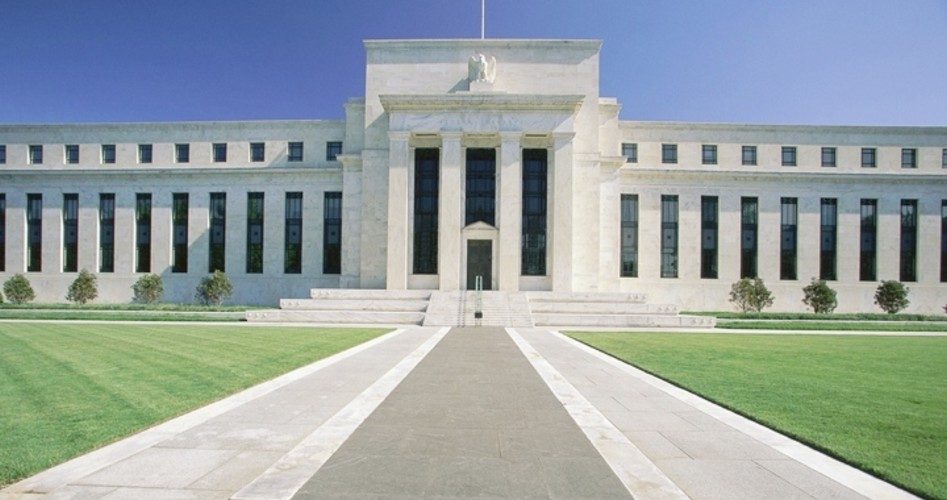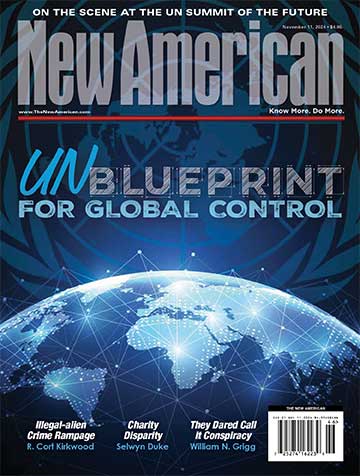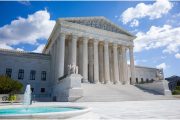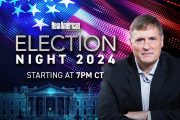
The Audit the Fed bill, sponsored by Texas Republican Ron Paul, was approved by the House Oversight Committee on Wednesday and will now advance to a full House vote. The bill, passed by a voice vote, calls for a full audit of the Federal Reserve System by congressional investigators.
The Washington Times explains that the Federal Reserve “consists of a board of governors and 12 regional banks, which act as lenders of last resort to the country’s banking system.” Federal law does not provide for such an audit, but Ron Paul’s bill would change that.
The Federal Reserve has been the subject of controversy, particularly as it has unconstitutionally usurped the power of regulating money. Likewise, its monetary policies and secrecy have provoked a great deal of criticism, particularly from Republican presidential candidate Ron Paul. Rep. Paul has been an adamant critic of the Federal Reserve System, and his opposition to it has drawn millions of Americans to question the monetary policies of the central banking system.
A limited audit of the Federal Reserve conducted by the Government Accountability Office last year found that the central bank “repeatedly invoked emergency authority to expand its lending during the Wall Street crisis in 2008 and 2009, including major loans to prop up the housing market,” reports the Washington Times. The audit also found a number of blatant conflicts of interest among federal officials.
The audit, as well as Paul’s resolute opposition to the institution, began to awaken the American people to critique the Federal Reserve and question its purpose and its policies. Among the various criticisms of the Federal Reserve, analysts blame it for the staggering inflation that is virtually destroying the value of the dollar through policies such as monetizing the debt and setting reserve requirements for banks. Likewise, the Federal Reserve’s policies have been blamed for creating moral hazard that has had a significant impact on the strength of the American economy.
Last December, the Fed drew negative attention when the Wall Street Journal reported that it was using funds to secretly bail out European banks, and not for the first time.
At the time, Dr. Paul pointed to the secret bailouts as further proof that the Fed should be audited:
The Fed’s latest actions in cooperating with foreign central banks to undertake liquidity swaps of dollars for foreign currencies is another reason why Congress needs enhanced power to oversee and audit the Fed. Under current law Congress cannot examine these types of agreements. Those who would argue that auditing the Fed or these agreements with central banks harms the Fed’s independence should reevaluate the Fed’s supposed independence when the Fed bails out Europe so soon after President Obama promised US assistance in resolving the Euro crisis.
Conservative pundit Glenn Beck addressed the secret beginnings and the inner workings of the Federal Reserve on his Fox News program last year, noting that the Fed is “nothing more than a cartel like OPEC, except it’s a money cartel, and this cartel has brought the federal government into it, and it’s only to enforce the rules of the cartel … it operates under the protection of the federal government and the government has virtually given a monopoly to create the nation’s money supply. There are no elected officials … no accountability to anyone.”
Fortunately, once the American people began to ask questions about the Federal Reserve, lawmakers began to question the policies of the Federal Reserve and the secrecy with which the agency has shrouded itself.
“Clearly the Fed must be made too big to fail, and too big to fail requires a considerable amount of oversight,” said Rep. Darrell E. Issa (R-Calif.), chairman of the committee that approved Paul’s bill.
“This whole idea about ‘Well, we can’t touch the Fed‘ is baloney,” said Rep. Dennis J. Kucinich, (D-Ohio). “We have to be able to have control over the Fed because it’s controlling every aspect of our economy.”
Similar sentiments were voiced by Senator Bernie Sanders (D-Vt.) during a March 2009 Senate budget meeting. Sanders was infuriated at the level of secrecy with which Federal Reserve Chairman Ben Bernanke answered questions regarding the Federal Reserve’s lending.
Sanders said:
We have spent a lot of time in Congress talking about the $700 billion TARP bailout … not a whole lot has been talked about with regard to the $2.2 trillion that the Fed has lent out. Now I find that absolutely extraordinary that I wrote you a letter and I said, “Hey, who did you lend the money to? What were the terms of those loans? How can my constituents in Vermont get some of that money? Who makes the decisions? Do you guys sit around in a room? Do you make it? Are there conflicts of interest?: So my question to you is, will you tell the American people to whom you lent $2.2 trillion of their dollars? Will you tell us who got that money and what the terms are of those agreements?
To which Bernanke responded, “Any bank that has access to the U.S. Federal Reserve system.”
Sanders asked for the names of the banks, but Bernanke refused to submit any because he claimed it “is counterproductive and will destroy the value of the program … banks will not come to the Federal Reserve.”
Sanders grew angry at that response and said, “Well isn’t that too bad. In other words, they took the money, but they don’t want to be public about who received it.”
The dialogue continued for several minutes, but in the end, no specific information regarding the exchanges between the Federal Reserve and the recipients of its funds was revealed.
Paul’s bill is expected to come up for a vote in July and will likely have success in a full House vote, as it has well over 200 co-sponsors in the House including a number of senior Democrats.
Unfortunately, a similar bill in the Senate has less support.
Photo: Federal Reserve Building via Shutterstock




